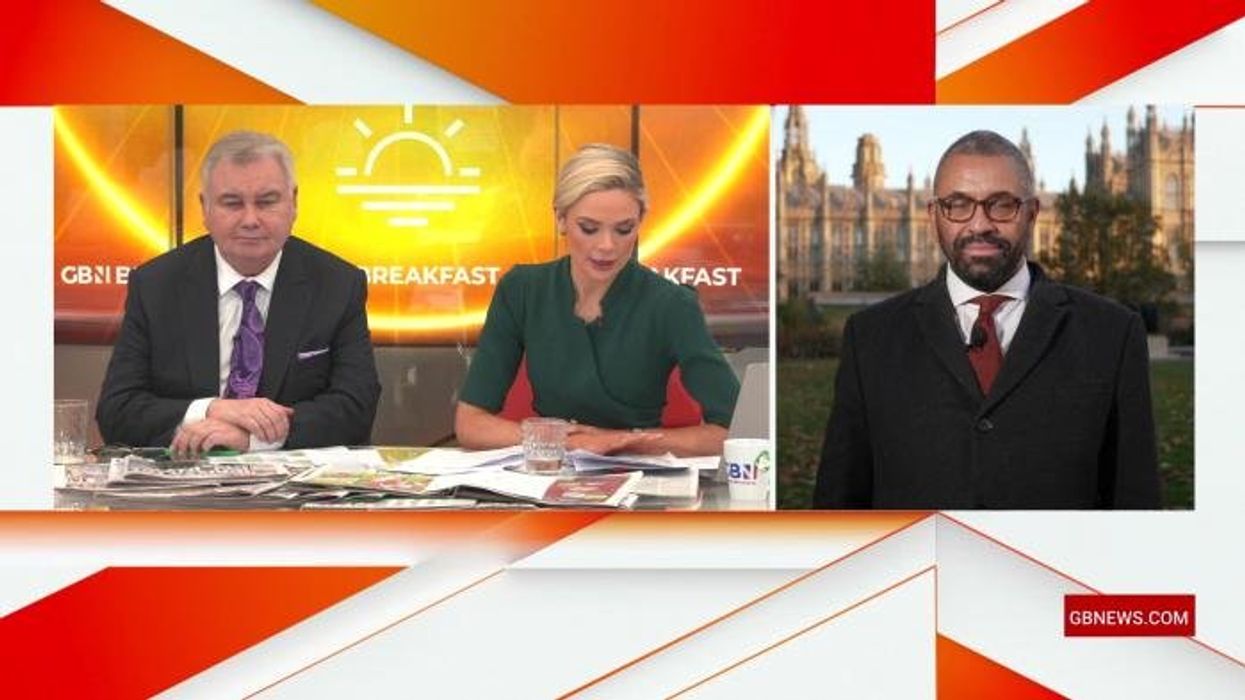Britons warned of ‘most overlooked threat’ that could hit your pay as Rachel Reeves prepares Budget

GBNEWS

Fiscal drag doesn’t just affect individuals - it affects the economic growth
Don't Miss
Most Read
Ahead of tomorrow’s Autumn Budget, Britons are warned of one of the most overlooked threats to the UK labour market - a policy that could keep boosting Treasury revenues if Rachel Reeves leaves it in place.
Experts have explained that is already influencing career choices and slowing talent mobility, with knock-on effects for economic growth.
A recruitment industry leader has identified the frozen income tax thresholds as "one of the most overlooked threats to the UK labour market" as it discourages workers from progressing and slows talent mobility across key sectors.
Frances Li, who founded and directs Biscuit Recruitment highlighted how this stealth taxation mechanism is already altering professional behaviour patterns, especially amongst qualified workers nearing higher tax bands.
"Tax rates haven't risen, but many people are paying more tax than ever," Ms Li states. "The threshold freeze has already acted as an invisible pay cut, and if it's extended to 2030, it could further discourage workers from moving jobs or seeking promotion."
Government projections reveal the scale of this stealth tax's impact on British workers. The Office for Budget Responsibility calculates that maintaining frozen thresholds until 2028 will draw an additional 3.2 million people into income tax payments.
A further 2.6 million individuals will find themselves pushed into the higher-rate tax band, generating £26 billion in additional revenue without any formal tax rate increases.
 Stealth taxes are on the rise | PA/GETTY
Stealth taxes are on the rise | PA/GETTY"The OBR projections only run to 2028, but if the freeze is pushed to 2030, fiscal drag will continue to intensify," Ms Li explains. "It wouldn't be unreasonable to expect another wave of higher-rate taxpayers, particularly among skilled workers whose salaries rise with inflation."
Such an extension would exacerbate existing talent shortages whilst forcing businesses, particularly smaller enterprises already managing narrow profit margins, to increase wages further.
The psychological toll on workers is becoming increasingly evident. "We're hearing more professionals ask: What's the point of progressing if most of it goes to tax? That hesitation is becoming common, especially among skilled workers approaching the next tax bracket," Ms Li reports.
LATEST DEVELOPMENTS:
 Experts are warning stealth taxes could be implemented by the Chancellor | GETTY
Experts are warning stealth taxes could be implemented by the Chancellor | GETTYShe identifies this mental shift as potentially the most significant labour market threat this decade. "When a promotion barely changes your take-home pay, ambition starts to fade," Ms Li observes. "That mindset shift is becoming one of the biggest risks to talent mobility, and it's already beginning to show."
Workers are increasingly questioning whether career advancement justifies the minimal net income gains after crossing into higher tax brackets, creating a psychological barrier that discourages professional development.
The broader economic ramifications are already materialising. "Fiscal drag doesn't just affect individuals it affects the economy," Ms Li warns.
"When people delay promotions or stay in roles longer than planned, employers struggle to hire, sectors struggle to grow, and innovation slows. Skilled candidates are becoming more hesitant, and that's creating friction across the talent pipeline."

If it's pushed to 2030, we'll likely see a deeper drag on labour-market activity, fewer job moves, delayed promotions and slower hiring cycles
| GETTYMs Li predicts these effects will deepen if the policy continues. "If it's pushed to 2030, we'll likely see a deeper drag on labour-market activity, fewer job moves, delayed promotions and slower hiring cycles."
She cautions employers about a subtle form of workplace disengagement emerging.
"If workers feel progression won't pay off, they stop pushing and start preserving energy. That's how quiet quitting begins. Not with disengagement, but with disappointment."










